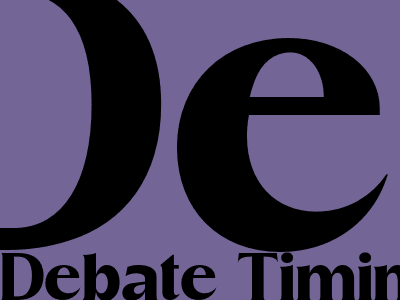Debate Timing: A Comprehensive Guide for Candidates and Campaign Managers
Introduction
Debate timing is a crucial aspect of any political campaign, as it can significantly impact the outcome of elections. By understanding the factors that influence debate timing and implementing strategic planning, candidates and campaign managers can optimize their chances of swaying voters and achieving their electoral goals. This article will provide an in-depth exploration of debate timing, outlining essential considerations, effective strategies, and research-backed insights to guide campaign professionals in making informed decisions.
Factors Influencing Debate Timing
Several key factors influence the optimal timing of debates:
- Voter Engagement: Debates generate significant voter interest and media attention. Scheduling debates during periods of high voter engagement, such as the primary season or the general election campaign, can maximize audience reach and influence.
- Candidate Availability: Candidates' schedules must be carefully managed to accommodate debates. Coordinating availability with other campaign events, personal commitments, and rest periods is essential to ensure candidates are well-prepared and able to perform at their best.
- Media Coverage: The timing of debates should align with media coverage schedules. Scheduling debates during prime-time slots or high-traffic news hours can increase viewership and amplify the impact of the event.
- Opponent Strategies: Candidates should consider the debate timing strategies of their opponents. Avoiding conflicts with major campaign events or high-profile speeches can prevent dilution of message impact and optimize voter attention.
Strategic Considerations for Debate Timing
Effective debate timing involves a combination of strategic planning and tactical execution:
- Early Debates: Early debates can be beneficial for introducing candidates, defining campaign platforms, and building name recognition. However, they may also carry risks, as candidates may not have fully developed their positions or may be less experienced.
- Mid-Campaign Debates: Debates held during the middle stages of the campaign allow candidates to showcase their policy proposals, contrast their views with opponents, and respond to emerging issues.
- Late Debates: Debates near election day provide candidates with a final opportunity to consolidate support, appeal to undecided voters, and reinforce their key messages.
Research-Backed Insights on Debate Timing
Research has provided insights into the impact of debate timing on election outcomes:
- Early Debates: Studies suggest that early debates can positively impact candidate favorability and issue salience, but may have limited effects on overall vote share.
- Mid-Campaign Debates: Debates held during the middle of the campaign are often seen as more consequential and can significantly influence voter perceptions and candidate electability.
- Late Debates: Late debates typically have higher viewership and can provide a substantial boost to candidates who perform well, but may also magnify any mistakes or weaknesses.
Conclusion
Debate timing is a multifaceted aspect of political campaigns that requires careful planning and execution. By understanding the factors that influence debate timing, implementing strategic considerations, and utilizing research-backed insights, candidates and campaign managers can optimize the effectiveness of their debate appearances, maximize voter engagement, and increase their chances of electoral success.
References:- Timing is Everything: The Impact of Debate Timing on Candidate Evaluations
- The Influence of Debate Timing on Voter Turnout and Candidate Choice
- Debate Timing and Campaign Strategy in the 2000 Presidential Election

Comments